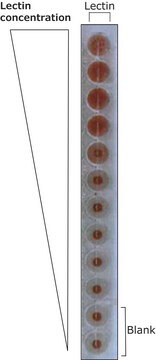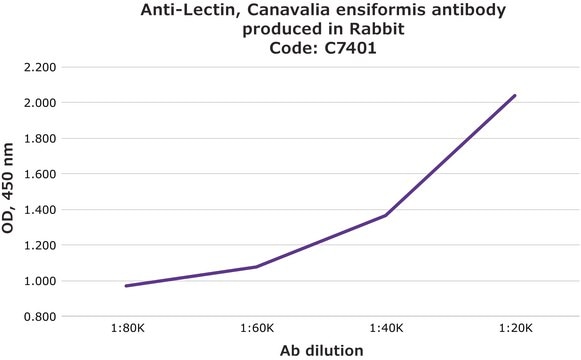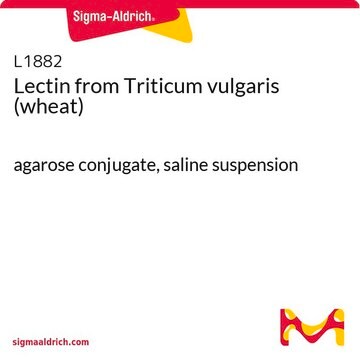T4144
Anti-Lectin, Triticum vulgaris antibody produced in rabbit
fractionated antiserum, lyophilized powder
Synonym(s):
Anti-WGA, Anti-Wheat germ lectin
About This Item
Recommended Products
biological source
rabbit
Quality Level
conjugate
unconjugated
antibody form
fractionated antiserum
antibody product type
primary antibodies
clone
polyclonal
form
lyophilized powder
species reactivity
Triticum vulgaris
packaging
vial of 2 mL
technique(s)
indirect ELISA: 1:50,000
storage temp.
2-8°C
target post-translational modification
unmodified
General description
Immunogen
Application
- immunolabeling experiments
- immunohistochemistry
- immunocytochemistry
Biochem/physiol Actions
Target description
Physical form
Reconstitution
Disclaimer
Not finding the right product?
Try our Product Selector Tool.
Storage Class Code
12 - Non Combustible Liquids
WGK
WGK 3
Flash Point(F)
Not applicable
Flash Point(C)
Not applicable
Personal Protective Equipment
Certificates of Analysis (COA)
Search for Certificates of Analysis (COA) by entering the products Lot/Batch Number. Lot and Batch Numbers can be found on a product’s label following the words ‘Lot’ or ‘Batch’.
Already Own This Product?
Find documentation for the products that you have recently purchased in the Document Library.
Our team of scientists has experience in all areas of research including Life Science, Material Science, Chemical Synthesis, Chromatography, Analytical and many others.
Contact Technical Service








